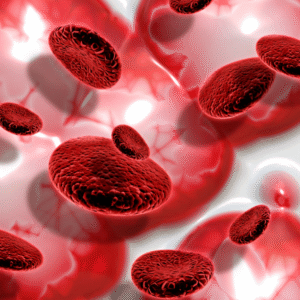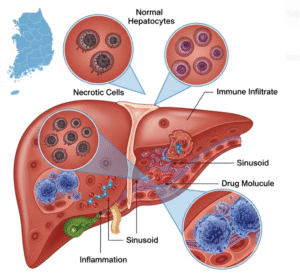Overview
Glucose-6-Phosphate Dehydrogenase (G6PD) deficiency is a genetic disorder affecting red blood cells. Individuals with G6PD deficiency lack sufficient activity of the G6PD enzyme, which helps protect red blood cells from oxidative damage. This can lead to episodes of hemolytic anemia, particularly after exposure to certain medications, infections, or foods. While often asymptomatic, severe cases require timely medical care.
What is G6PD Deficiency?
G6PD deficiency is an X-linked inherited disorder, meaning it predominantly affects males, while females are typically carriers. The deficiency prevents red blood cells from effectively combating oxidative stress, causing them to break down prematurely (hemolysis).
Symptoms
Symptoms may appear suddenly following triggers and can include:
- Yellowing of the skin and eyes (jaundice)
- Fatigue and weakness
- Dark-colored urine
- Rapid heart rate
- Shortness of breath
- Enlarged spleen in some cases
Causes
G6PD deficiency is genetic, caused by mutations in the G6PD gene. Oxidative stress from external triggers can precipitate hemolytic episodes, such as:
- Certain medications (e.g., some antibiotics, antimalarials)
- Infections
- Consuming fava beans or certain legumes
- Exposure to chemical oxidants
Risk Factors
- Male sex (X-linked inheritance)
- Family history of G6PD deficiency
- Belonging to populations with higher prevalence, such as Mediterranean, African, or Southeast Asian ancestry
- Exposure to oxidative stressors
Complications
- Acute hemolytic anemia
- Severe jaundice and bilirubin buildup, potentially leading to kernicterus in newborns
- Chronic hemolysis in rare cases
- Gallstones from prolonged hemolysis
Prevention
- Avoid medications known to trigger hemolysis
- Avoid fava beans and other oxidative foods
- Prompt treatment of infections
- Genetic counseling for families with a history of G6PD deficiency
Treatment Options in Korea
Korea provides advanced care for G6PD deficiency, including diagnosis, monitoring, and management of hemolytic episodes:
- Diagnosis
- Blood tests to measure G6PD enzyme activity
- Genetic testing for definitive confirmation
- Management of Acute Episodes
- Hospitalization for severe hemolysis
- Blood transfusions if necessary
- Intravenous fluids and supportive care
- Preventive Care
- Patient education on trigger avoidance
- Routine monitoring for children and adults at risk
- Coordination with primary care and hematology specialists
- Specialized Centers
- Major hospitals such as Seoul National University Hospital, Samsung Medical Center, and Asan Medical Center offer expert hematology care, including genetic counseling and emergency management.













